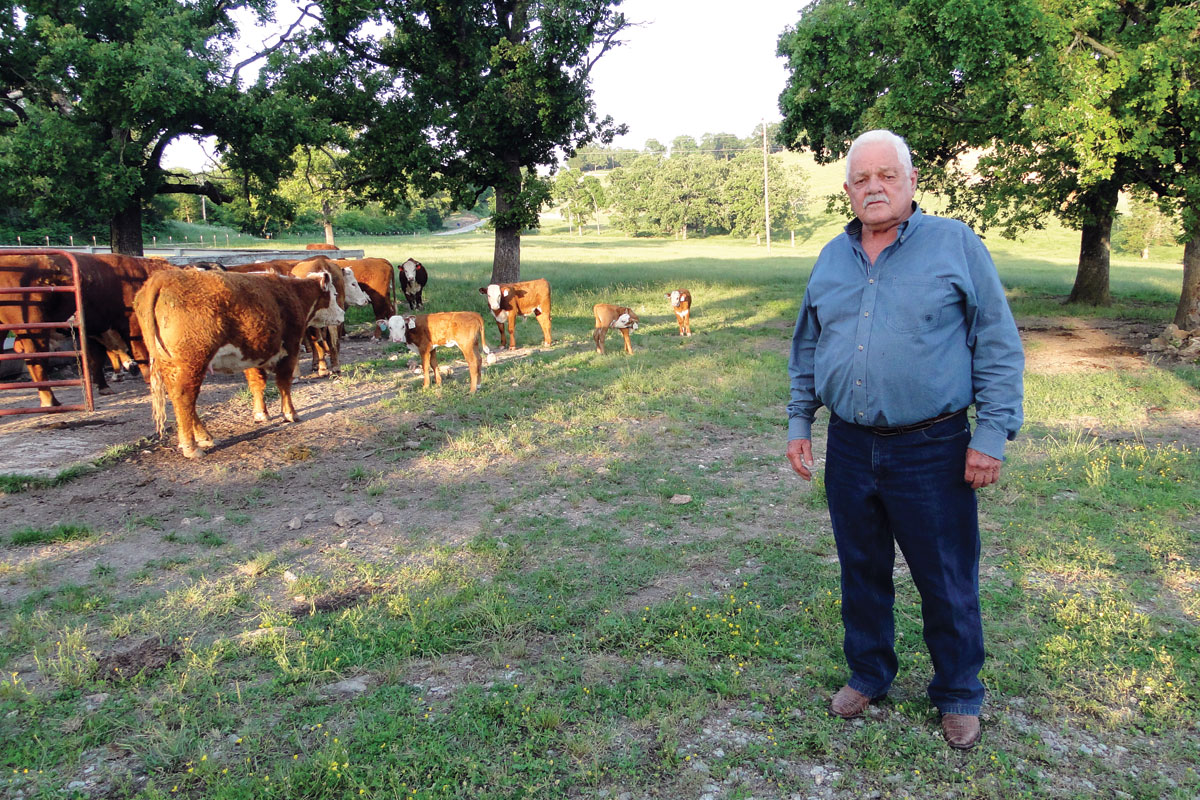
Tucked away in a far corner of Laclede county is a small farm, maybe it’s not a farm (you’ll have to be the judge,) bearing the name Falcon Ridge Farm and owned by Wendy Lombardi.
But this story needs a bit of backstory.
It’s Omaha, Neb., in the 1960s and a little girl of 2 or 3 is already dreaming about farming. Later in her teens she is working horseback at a sale barn in Lincoln, Neb. Tack on a degree in equine science, a stint at a Hollywood Hills dude ranch, a stable job in Germany and a large horse farm in Florida. At one point she found herself during a punk-rock phase in Greenwich Village in New York City where she declared to another fellow-punker, “You know, I really need to marry a farmer.”
Fast-forward to 1989 and Wendy finds herself enlisting in the Army to add to her growing educational arsenal. Later deployed to Saudi Arabia as part of a transportation unit during the Gulf War, she ends up as a driver for the Battalion Commander, at times going into Iraq. Somehow, somewhere, an accident leaves her with a pinched nerve that later requires major back surgery. In 2009, Wendy arrives in Missouri, a disabled vet, and a divorced single mom raising three children.
This brings us back to the farm that might not be. It encompasses 40 fenced acres and abuts the Mark Twain National Forest on two sides.
Through the years Wendy has tried her hand at dairy goats. But it didn’t work. “Location, location, location.” She found herself too far away from anywhere to market the milk.
She still raises both meat and laying chickens. “We are eating about all the eggs.”
She tried to have a dairy cow once but, “I couldn’t do it, every time she moved, she’d tip me over.”
Her pig attempt ended when, “My best sow wouldn’t get pregnant.”
Horses round out the livestock and now she has just one. “Her job is to make poop for the garden.”
Wendy refers to all this experience, as her experiments. But where did it lead?
For this, a little more backstory.
Throughout her career, single-mom and military life, she was always drawn to, and good at, teaching. Couple this with a passion for wellness and service and you have the makings of her next venture; partly underway now but on a small scale.
An old brochure for Falcon Ridge Farm has this quote: “Give a family potatoes and feed them for a day… Teach them to grow and store potatoes, and feed them forever.”
Wendy has a large shop building with a small apartment at one end. Soon-to-be-former Captain Sam Dia, U.S. Army, is staying there and helping with the farm.
How did an Army Captain come to be at Falcon Ridge? Wendy contacted folks at Ft. Leonard Wood to see if anyone was interested in learning about and working on a farm. That led to other contacts.
Wendy got involved with the Sustainable Ozarks Partnership and also a national organization called the Farmer Vet Coalition, whose mission is to mobilize veterans to feed America. Wendy wants to teach vets so they can start with something as basic as feeding their own families.
“Farming needs dedicated service-oriented people to tackle the second toughest job in the world (to her, the first is being in the military) so who better than veterans,” Wendy noted as she described her goals for this middle-of-nowhere acreage. “Military jobs are so intense. Trying to take a veteran and plug them into society is not a good fit. But this is a good fit.”
Captain Sam is here learning about chickens, goats and gardening. Sam is looking at several options; maybe cattle will figure in his future. “I am one generation removed from the farm. My grandparents were farmers but my parents were white-collar workers.”
Wendy jumps back into the conversation, “We have a farmer shortage. We’ll have more people in the world than we can feed in 10 years. We need to teach people to feed themselves.”
This brings us back to her own farming attempts. “You don’t have to jump in and be big – FARMING (her voice bolding the last word) and take on this huge cow/calf operation. Experiment with small things like chickens. Produce eggs for your family.”
Her oft-repeated mantra was “Feed your family, feed your neighbor, feed your county.”
Wendy has never given up on goats. “I’m going to try a small experiment with meat goats and hit the specialty market with organic goat meat.” She has a meat goat buck already. “I’m going to try this with a dairy goat and see if I have a meatier goat to sell. Maybe I can get more dollars per pound.”
In November Wendy will combine her love and skill of teaching with her farm and mission again and to a wider audience when the Sustainable Ozarks Partnership will hold a daylong seminar for local veterans at her farm. There will be workshops on rotational grazing, off-grid electric fencing and water supply, dairy goats, soils, forests and a session on grant writing.
Out of this she hopes to get more veterans interested in coming to her farm for some hands-on experience. “If I have to, I’ll move into the apartment and let a family live here,” as she pointed around her two-level cabin.
Scientists work in labs and experiment constantly. Maybe Falcon Ridge could be more accurately described as a Farm Laboratory and Wendy as its resident scientist.







